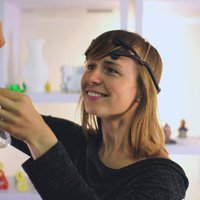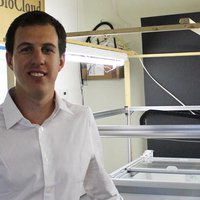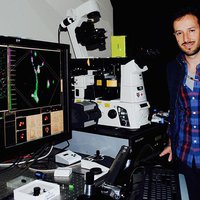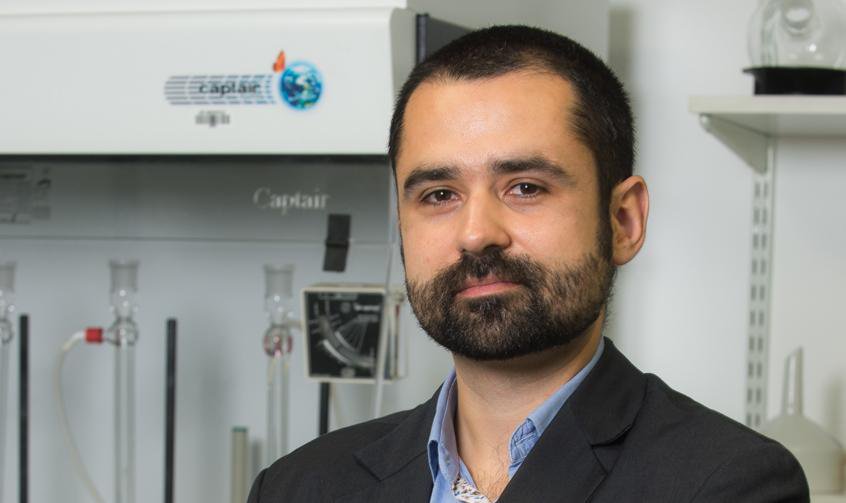"FAO has been advising for years that humans should find more sustainable ways to include more animal protein in their diet. With 8,000 million humans anticipated for 2025 and a growing fish and meat consumption in emerging countries, environmental pressure on fishing countries such as Peru and Chile will continue to intensify. This is where most of the fish used for farm animals feed comes from, which are eventually consumed by humans.
A solution to the problem, according to FAO, would be to complement beef, salmon and pork with beetle, fly and cricket larvae, given that insects are more efficient converting biomass into protein. Almost one third of the world's population eats insects in countries like China and Mexico, although many western countries find the idea repulsive.
While an insectivorous menu is socially rejected, the young Frenchman Antoine Hubert poses that other less scrupulous species could take advantage of this diet, such as birds and aquaculture fish. Hubert is the executive director of the company Ynsect, dedicated to insect breeding and derivative bio-products manufacturing, such as oils and protein powders.
Hubert, an Agricultural Engineer graduated from AgroCampus Ouest with a Masters in Ecology, Biodiversity and Evolution by AgroParisTech Institute, both in France, has the goal to sell these products to farmers and pet food manufacturers that year after year see how feed prices increase. He also seeks to produce, more effectively, chitin and chitosan, materials obtained from the shells of insects and that are of high demand in several industries; as well as insect excrement, rich in nitrogen, phosphorus and potassium, which may be used as a plant fertilizer.
According to Hubert, the insect producing industry is about to explode and in less than half a century the market will be enormous. He explains that “The last time there was such a revolution was 40 years ago when aquaculture grew from a traditional system to a real industrial production system of millions of tons annually in Norway"". He adds ""We are now the same point in the insect industry”.
Although Ynsect has tested dozens of species, they chose for their first commercial products the Tenebrio molitor, also called mealworm beetle. Docile, gregarious and nutritious, this animal is the cash cow in the field of insect breeding. ""It is nocturnal, flightless and contains very high amounts of protein and chitin compared to other insects. It is produced for animal feed and even human consumption in some countries, ""explains Hubert.
So far they are obtaining four products from Tenebrio: a high-protein flour used for high quality feed for fish, poultry and pets; a very well balanced in omega 6 fatty acids, very suitable for animal nutrition; chitin powder and its derivative chitosan: useful in different chemicals applications, from waste water treatment to cosmetics and bioplastics; and insect frass, a powder very well balanced in nitrogen, phosphorus and potassium useful for fertilizers.
The process takes place in a pilot plant in Besançon (France), where beetle larvae are bred, and once they reach adulthood they are sacrificed through a boiling process. Ynsect has installed robots designed by themselves in their first commercial plant in Dole, which will start operations in 2016. These machines are responsible for processing dead animals through a biological and mechanical separation, thus obtaining the different sub products. The whole process is protected by five patents and several more are on the way.
Hubert is confident that in 2016 they will be producing protein flour and oil commercially. The rest will have to wait a few years in Europe, but they don’t rule out expanding their offering to human consumption products, from insect flour for pasta, appetizers and desserts to energy bars and cheese. However, Hubert remarks, they are studying only the Asian market for these products, since in most of Europe their sell for human consumption is not regulated yet.
For Catherine Picart, professor at Grenoble Institute of Technology and member of the jury of MIT Technology Review Innovators Under 35 France, Hubert’s project stands out for its ""enormous application potential"", since his products ""respond to the major social problem of obtaining a sustainable food source."""




